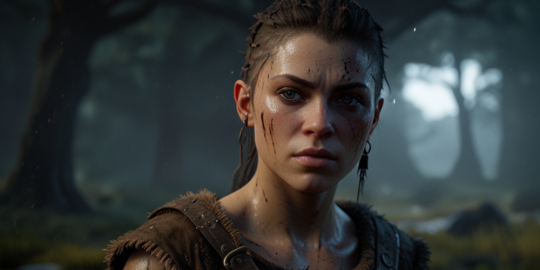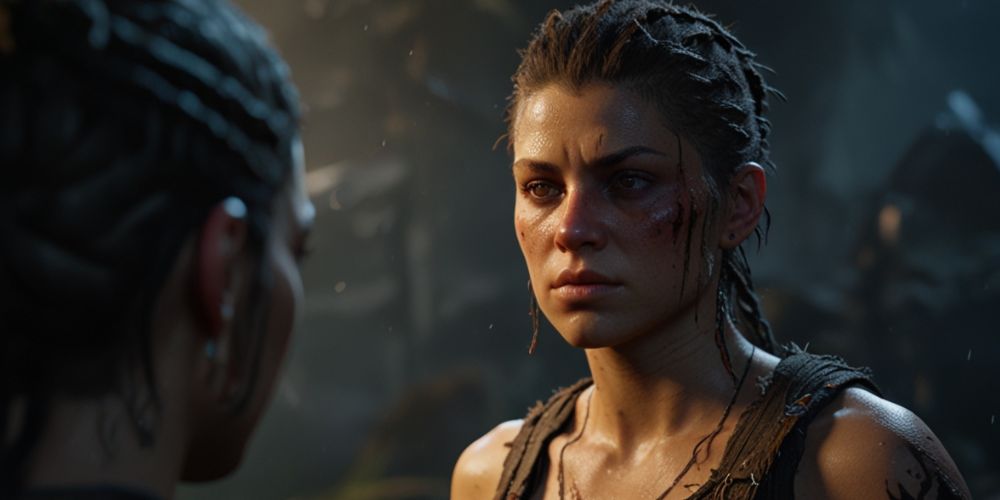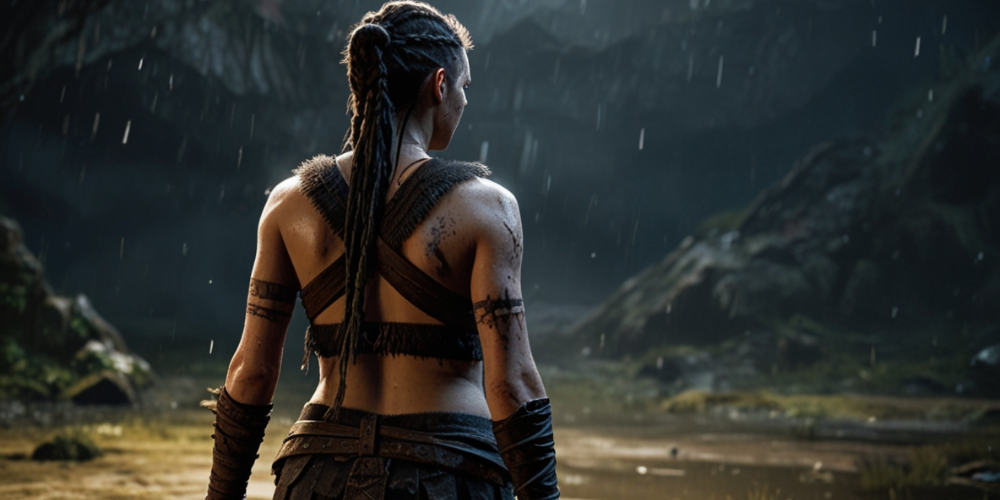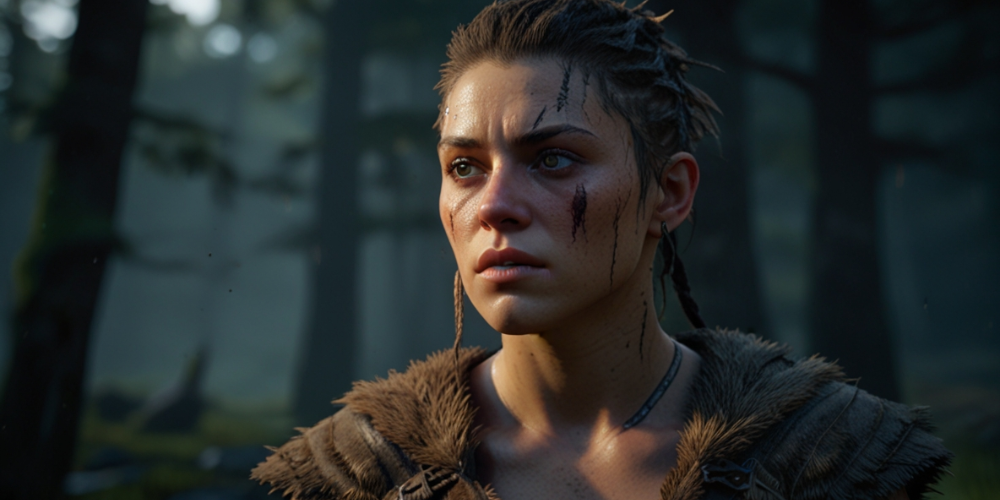
As I embarked on my journey through Hellblade: Senua's Sacrifice, I found myself captivated not only by the haunting landscapes and immersive gameplay but also by the intertwining threads of Norse mythology that permeate the narrative. This game immerses players in the psyche of Senua, a fighter confronting deep-seated psychological distress, as she faces off against both outer foes and her inner struggles. The fusion of her personal struggles with the rich tapestry of Norse lore creates a profound experience that kept me engaged from beginning to end.
The Mythic Setting
Right from the outset, I was aware that my adventure was set in a world deeply influenced by ancient Norse beliefs. The setting itself, shaped by the cultural lore, reflects the harsh and beautiful landscape of Scandinavia. The eerie landscapes and bizarre imagery I encountered brought to mind the legendary worlds depicted in writings such as the Poetic Edda and Prose Edda. This immersive setting consistently reminded me that Senua’s quest was not just a personal struggle but a journey through a world steeped in mythology.
Senua’s Struggles and Mythological Parallels
One of the most vivid elements of Hellblade for me was Senua's mental anguish, which resonated with the existential battles present in Norse mythology.. Her descent into darkness mirrors the threats faced by gods and giants. I felt a profound connection between Senua’s personal demons and figures like Odin, who sought knowledge at great cost, and Thor, who grappled with his own burdens. This parallel created a layered storytelling experience that resonated with me deeply.
Odin’s Influence in the Narrative
Throughout the game, the presence of Odin looms large. I couldn’t ignore how Senua’s quest to retrieve her lover’s soul from Hel mirrored Odin's own ventures into the underworld for wisdom. As I navigated the challenges, I found myself reflecting on Odin's relentless pursuit for knowledge, much like Senua's journey through her fears and memories. The connection between her resilience and Odin's determination was profound, shedding light on the overarching themes of sacrifice and discovery.

The Role of the Valkyries
My encounters with Valkyries throughout the game heightened my appreciation for Senua's plight. These powerful figures, often viewed as guides for fallen warriors, served as a reminder of the honor and glory associated with battle in Norse mythology. As I faced the Valkyrie challenges, I felt Senua's desperation to prove herself worthy—a reflection of the ancient valor that the Valkyries represent. The physical and emotional trials I experienced became a symbolic representation of the very essence of warrior culture.
Symbolism of the World Serpent
During my exploration, I encountered various symbols reflective of Norse mythology, particularly the World Serpent, Jörmungandr. This creature intertwines throughout the game, symbolizing the cyclical nature of life and death. I couldn’t help but feel a connection to Senua, who, like the serpent, was caught in a continuous cycle of struggle and rebirth. The imposing imagery of the serpent added a layer of depth to my understanding of Senua’s psychological battle, portraying her struggles as both a personal and universal aspect of existence.
The Use of Runes
While navigating through the game, I discovered that the use of runes serves a greater purpose than mere gameplay mechanics. The symbols are steeped in magical significance, representing the interconnectedness of Senua’s journey and the Norse gods. As I deciphered them, I found that they echoed the idea of fate and destiny. Just as Norse mythology asserts that every action has consequences, Senua’s choices ripple throughout the narrative, reinforcing the weight of her journey.

Hel and the Journey Through the Underworld
Senua's descent into Hel, the underworld, was both unsettling and enlightening. I found parallels with the myth of Hel, the goddess who governs this realm, where the souls of the unworthy reside. Senua’s confrontation with Hel became a pivotal moment for me, encapsulating the heart of Norse beliefs about death, sacrifice, and the afterlife. It emphasized that even in despair, there lies an opportunity for understanding and redemption.
The Influence of Hela
The portrayal of Hela as a formidable antagonist resonated with my understanding of mythology. Hela embodies the very essence of death and fate within Norse myth, cementing her as an expression of Senua’s fears. As I battled against her influence, I thought deeply about how the narrative wielder elegantly captured the complexities of the human psyche, manifesting them through Hela's chilling presence. This personification of Senua's struggles added an incredible depth to the overall experience.
The Importance of Community and Kinship
Norse mythology often emphasizes the value of community and kinship among warriors. As I progressed through the game, I constantly encountered echoes of this theme, particularly in Senua’s longing for connection with her deceased lover, Dillion. Their bond represents the ideals of loyalty and love that transcend death, embodying concepts found within Norse storytelling where strong relationships influence one's fate. This deeper layer of emotional resonance made Senua's journey feel all the more meaningful.
Challenging the Narrative of Heroism
What struck me most profoundly was how Hellblade challenged the traditional narrative of heroism through its depiction of Senua. Unlike the typical archetype of the invincible warrior, Senua’s journey is fraught with vulnerability and mental distress. The game highlights the idea that true heroism lies in confronting one's inner turmoil and navigating through pain. This perspective aligns with various Norse narratives where gods displayed weaknesses, reminding me that strength is often found in acknowledging fragility.

The Voice of the Gods
The game’s audio landscape took my immersion to another level. The whispers that Senua hears are reminiscent of the counsel and judgment from the gods found in Norse tales. These voices often provide both insight and torment, creating a duality that is reflective of Senua’s struggles. I felt as though the gods themselves were engaging with her psyche, mirroring Odin's constant presence, guiding but also challenging those who dared to tread upon the path of understanding.
Mythological Themes of Fate and Destiny
The game powerfully conveys the Norse concept of fate, where the destinies of gods and mortals alike are intricately woven. This theme became evident through Senua's relentless quest, where her choices appeared to dance upon the strands of fate. I often questioned whether she could alter her path or if she was forever bound by her past. The influence of the Norns, who spin the fates of all beings, consistently loomed over my experience, bringing a questioning aspect to Senua's narrative.
The Art of Storytelling
The way Hellblade intertwines Senua's personal journey with Norse mythology shaped the storytelling in a unique manner. The visuals, sound, and gameplay all coalesce into a narrative experience that felt incredibly rich and multifaceted. Each mythological reference added layers of understanding, making me reflect on how stories from the past can illuminate present struggles. The game became more than entertainment; it morphed into a canvas for exploring deep emotional narratives, echoing the timeless tales of Norse mythology.
Transcendence and Transformation
As I completed the game, I recognized a significant theme of transcendence and transformation at its core. Senua’s journey symbolized not only her battles but her potential to overcome adversity. This aspect resonates with the tales of gods who faced insurmountable odds and emerged changed. By intertwining Senua’s psychological narrative with these ancient stories, the game allowed me to reflect on the nature of growth and healing, echoing the transformative elements present in Norse mythology.
Final Thoughts on Mythology and Identity
Throughout my time in Hellblade: Senua's Sacrifice, I felt a powerful connection—the interplay of Norse mythology and Senua’s identity revealed profound insights into the human condition. The game encouraged me to examine struggles, not just on a personal level, but through the lens of timeless tales that illuminate our shared humanity. Within the crucible of myth, Senua's story offered an exploration of mental health, heroism, and the essence of being, prompting me to consider how mythology can shape our understanding of ourselves.